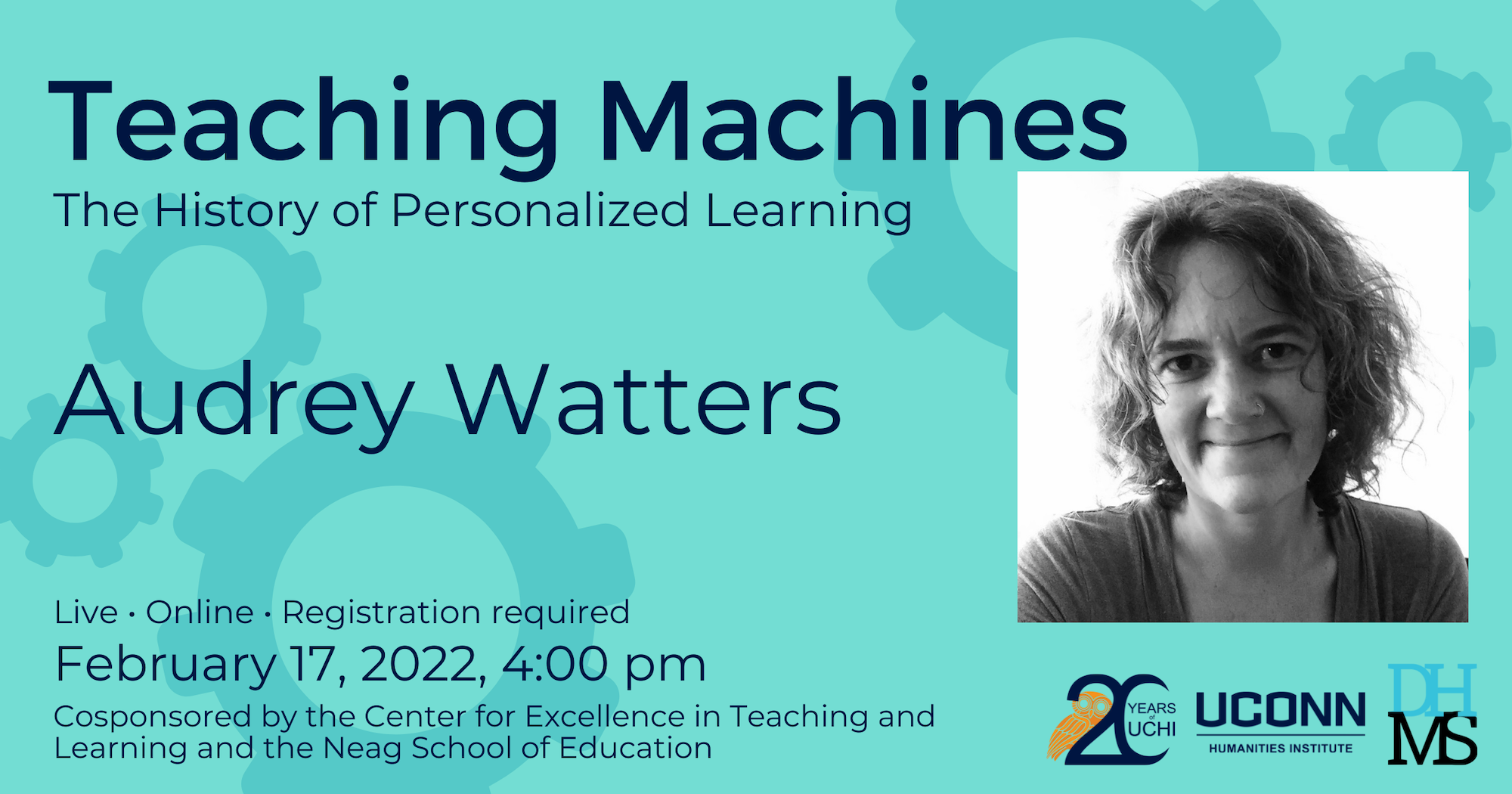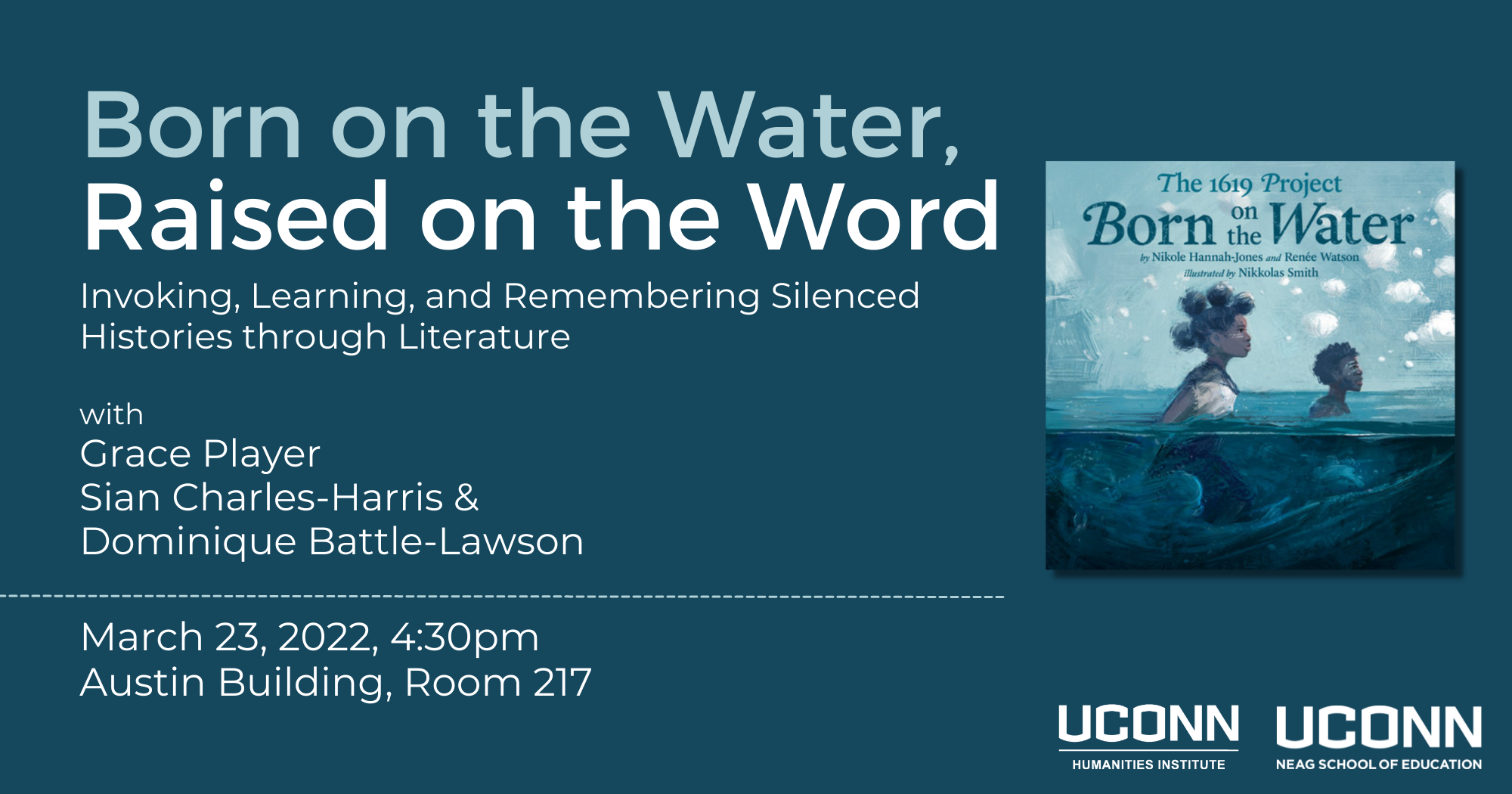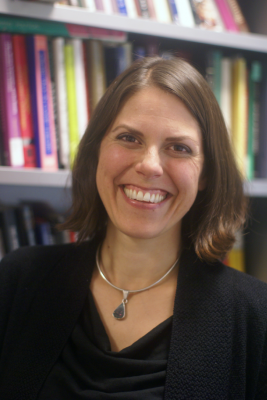
If you require accommodation to attend this event, please contact us at uchi@uconn.edu or by phone (860) 486-9057. We can request ASL interpreting and other accommodations offered by the Center for Students with Disabilities. The event will be presented with automated transcription.
The Digital Humanities and Media Studies Initiative presents:
Teaching Machines: The History of Personalized Learning
with Audrey Watters
February 17, 2022, 4:00–5:00pm
Live • Online • Registration required
Join us to hear Audrey Watters speak about her latest book, Teaching Machines: The History of Personalized Learning (MIT Press), which tells the pre-digital history of “personalized learning.” Watters demonstrates that the history of ed tech does not begin with videos on the internet, or even with the personal computer. Her book instead focuses on early twentieth-century teaching machines, the psychological theories that underpinned them, how they were reported on in the media, and how they shaped and were shaped by the cultures in which they were produced.
Audrey Watters is a writer and independent scholar who focuses on education technology—its politics and its pedagogical implications. Although she was two chapters into her Comparative Literature dissertation, she decided to abandon academia, and she now happily fulfills the one job recommended to her by a junior high aptitude test: freelance writer. She has written for The Baffler, The Atlantic, Vice, Hybrid Pedagogy, Inside Higher Ed, The School Library Journal, and elsewhere across the Web, but she is best known for the work on her own website Hack Education. Audrey has given keynotes and presentations on education technology around the world and is the author of several books, including The Monsters of Education Technology, The Revenge of the Monsters of Education Technology, The Curse of the Monsters of Education Technology, The Monsters of Education Technology 4, and Claim Your Domain. Her latest book, Teaching Machines (MIT Press), examines the pre-history of “personalized learning.” Audrey was a recipient of the Spencer Education Journalism Fellowship at Columbia University for the 2017–2018 academic year.
Cosponsored by the Center for Excellence in Teaching and Learning and the Neag School of Education.
In advance of her talk we will be hosting a book discussion on Teaching Machines February 10 at 3:00pm.


 The
The 
